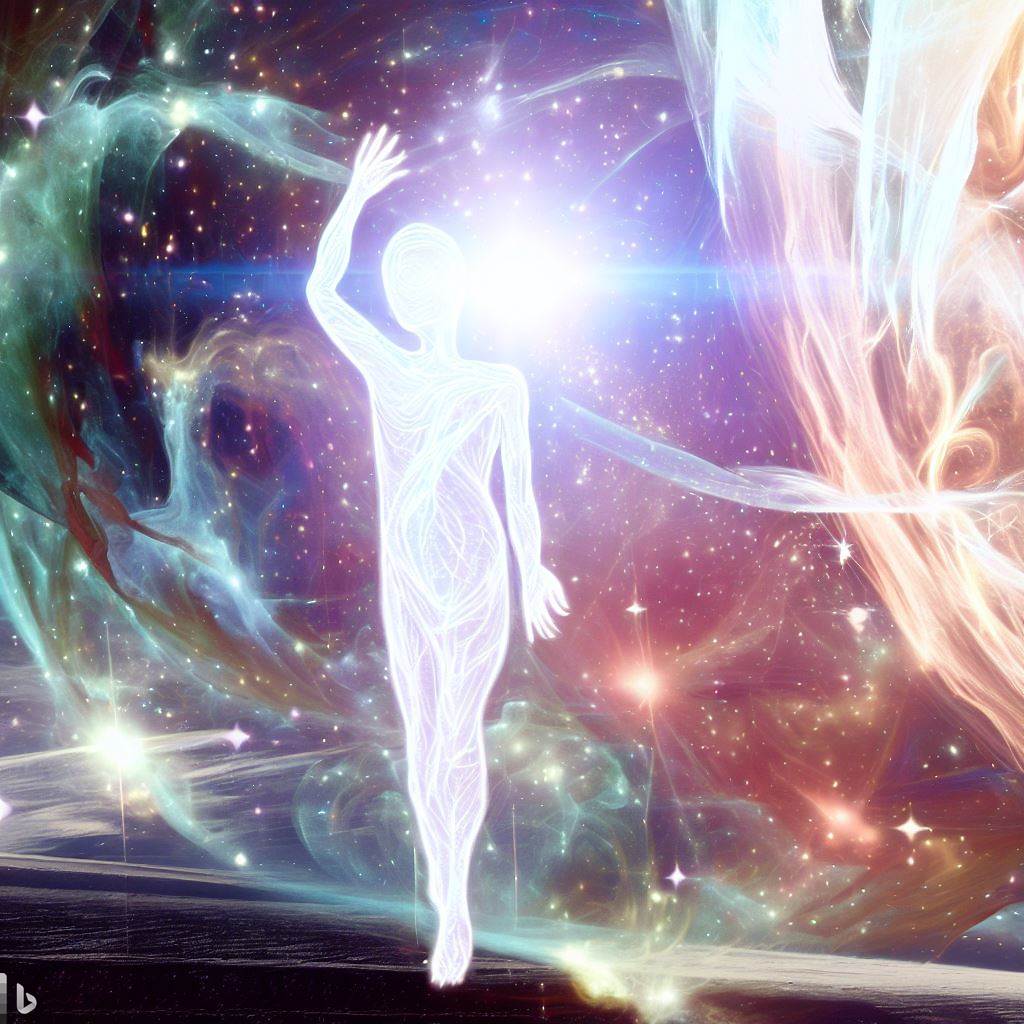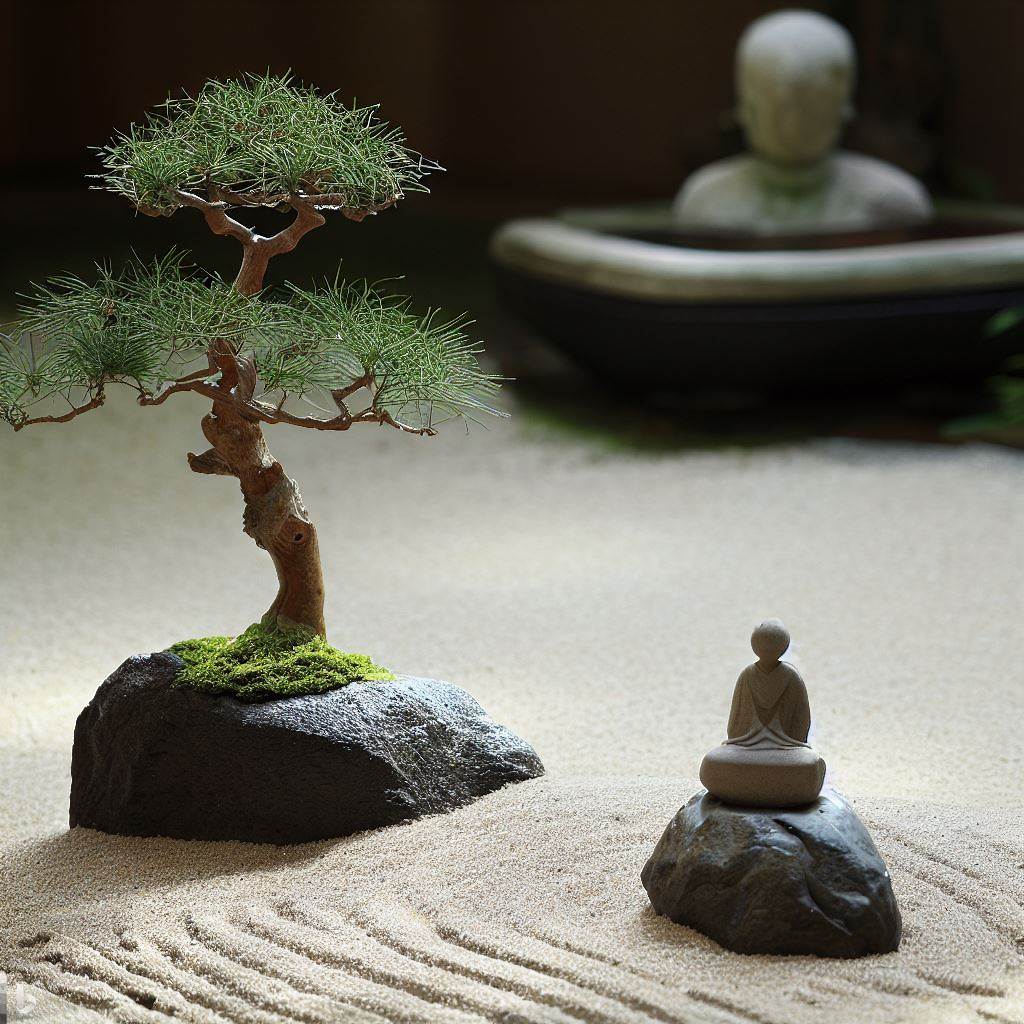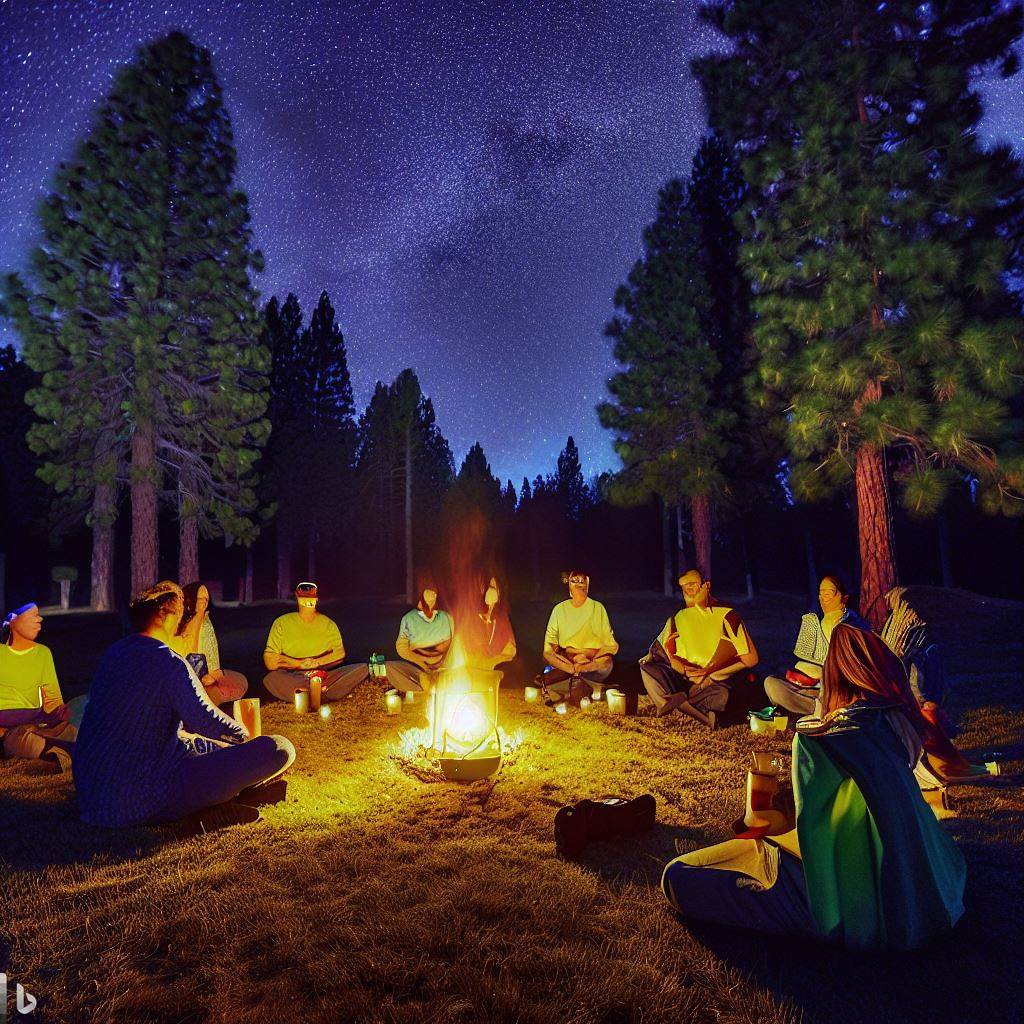
The journey toward understanding the nature of existence has taken humanity from the realm of philosophy to the quantum sciences. This is not just an intriguing question, but a quest that explores the depths of human consciousness and the mysteries of the universe.
The Concept of Dimensions and Reality
Life as we know it operates within the constraints of the three-dimensional space. But what if we could access another dimension? The concept of the 4th Dimension often refers to an additional spatial dimension, beyond the regular three – height, width, and depth. The potential of this extra dimension has been the subject of many scientific and metaphysical discussions.
Understanding the Three Dimensions
Before diving into the 4th Dimension, it’s crucial to comprehend our three-dimensional existence. We’re bound by the dimensions of height, width, and depth, giving us the ability to perceive the world around us.
The Fourth Dimension: Time or Space?
The concept of the 4th Dimension is a topic of debate amongst scientists and philosophers alike. Is it an extension of space or is it the fabric of time? This section will delve into the different interpretations and theories.
Awakening to the 4th Dimension: A Journey Beyond the Physical Realm
Awakening to the 4th Dimension is often associated with heightened consciousness and spiritual enlightenment. It involves transcending the physical plane and accessing higher vibrational frequencies.
Signs and Symptoms of the Fourth-Dimensional Awakening
Just like any transformative process, awakening to the 4th Dimension comes with its unique set of signs and symptoms. Understanding these can provide valuable insights into this transformative journey.
Spiritual and Psychological Impacts of Awakening to the 4th Dimension
Embracing the 4th Dimensional consciousness significantly impacts an individual’s spiritual and psychological aspects. This section sheds light on those changes and explores the implications of such shifts.
The 4th Dimension in Culture and Media
The idea of the 4th Dimension has inspired many aspects of pop culture, from books and movies to video games. This section examines how these interpretations contribute to our understanding of the 4th Dimension.
Fourth Dimension in Literature
From the mind-bending narratives of H.P. Lovecraft to the imaginative world of Madeleine L’Engle’s “A Wrinkle in Time”, literature has used the concept of the 4th Dimension to explore themes of space and time.
Fourth Dimension in Cinema and TV
Cinema and television have often used the 4th Dimension as a tool to tell stories beyond the constraints of our three-dimensional world. We’ll look at some famous instances in this section.
Transporting Viewers into the Fourth Dimension: The Magic of Film
Cinema and television, the enchanting realms of storytelling, have often toyed with the fourth dimension to weave narratives that whisk audiences away from the confines of their three-dimensional existence. These tales transcend time, space, and reality, inviting viewers on an exhilarating journey through the mystical and the unknown. Let’s turn the spotlight on some unforgettable instances that captivated audiences worldwide.
Interstellar: A Love Letter to the Fourth Dimension
Christopher Nolan’s Interstellar is a cinematic masterpiece that beautifully marries astrophysics and emotion, weaving a narrative that flirts with the concept of the fourth dimension. The film transports viewers across the cosmos, through wormholes, and into the heart of a tesseract, a fourth-dimensional space. Through this journey, it explores how love, like the fourth dimension, can transcend space and time, connecting souls across the cosmos.
The Twilight Zone: Venturing into the Unknown
Rod Serling’s legendary series, The Twilight Zone, was an early pioneer in the exploration of the fourth dimension on television. The series invited viewers into a ‘middle ground between light and shadow, between science and superstition,’ challenging our perceptions of reality. By exploring themes of time travel and alternate realities, The Twilight Zone provided glimpses of the potential complexities and paradoxes of the fourth dimension.
These groundbreaking films and TV shows breathe life into the abstract concept of the fourth dimension, casting it as an unseen character in their narrative. They draw viewers into the mysterious realms beyond the tangible, engendering a sense of wonder and curiosity.
As we collectively venture into the exploration of the fourth dimension, cinema and television will undoubtedly continue to be pivotal in shaping our understanding. They will spark our imaginations, challenge our perceptions, and stir our emotions, illuminating the path as humanity dares to unravel the enigma of the fourth dimension. Thus, the fourth dimension in cinema and television serves not just as a narrative tool, but also as a mirror reflecting our deepest yearnings to transcend the limits of our existence and venture into the vast, uncharted territories of the cosmos.
Meditation and the 4th Dimension
Meditation has long been associated with transcending the physical and accessing higher states of consciousness. We’ll explore the connection between meditation and the 4th Dimension.
Journey to the Self: Meditation and the Fourth Dimension
The ancient practice of meditation is a quiet revolution, a gentle but profound journey into the self. As our minds still and our bodies relax, we begin to transcend the physical, accessing states of consciousness that eclipse our everyday experiences. The fourth dimension, that elusive realm beyond the tangible, often takes center stage in this exploration. Let’s embark on an insightful journey into the mystical bond between meditation and the fourth dimension.
Navigating Time: The Temporal Transcendence of Meditation
At its core, meditation is an exploration of consciousness, a voyage beyond the confines of time and space. When we meditate, we step out of the linear stream of time, immersing ourselves in the eternal present. This transcendence of time is akin to awakening to the fourth dimension, where time is not a river flowing from past to future, but a vast ocean in which past, present, and future exist simultaneously.
Accessing Higher Realities: Meditation as a Gateway
Meditation also offers glimpses of realities beyond our typical sensory perceptions. As we delve deeper into meditative states, we may encounter experiences that defy three-dimensional explanations. These can include feelings of expansive awareness, encounters with intricate geometric patterns, or profound insights that seem to originate from a source beyond our individual selves. These experiences, while subjective, suggest a connection to a fourth-dimensional reality, further reinforcing the link between meditation and the fourth dimension.
Unity Consciousness: The Oneness of the Fourth Dimension
At the highest peaks of meditative experience, many practitioners report a sense of unity consciousness, a dissolution of the boundaries between self and others. This echoes the holistic nature of the fourth dimension, where separateness gives way to an interconnected continuum. Through meditation, we may begin to experience this interconnectedness, sensing our inherent unity with all that exists.
Meditation and the 4th Dimension: A Path to Awakening
In essence, meditation can serve as a pathway to the fourth dimension, guiding us toward an experiential understanding of this enigmatic concept. It’s a journey of awakening, an invitation to step outside the bounds of physicality and embrace a wider spectrum of reality.
As we continue to uncover the mysteries of the fourth dimension, practices like meditation offer invaluable tools for exploration. They provide a bridge between the theoretical and the experiential, enabling us to not only conceptualize the fourth dimension but also to encounter it in our inner landscapes. The exploration of the fourth dimension, thus, becomes not merely an intellectual pursuit, but a deeply personal, transformative experience, reminding us of the boundless potential of human consciousness.
Practical Implications of the 4th Dimension
What does it mean for us if the 4th Dimension truly exists? This section explores the practical implications and potential benefits of awakening to the 4th Dimension.
Unveiling Infinite Possibilities: The Practical Implications of the Fourth Dimension
If the fourth dimension truly exists, and we can learn to navigate its vast expanses, our world – our perception, our reality, our existence – stands to be revolutionized. This is no mere flight of fancy; it’s an awakening, an enlightenment that could redraw the boundaries of human potential. Here, we delve into the myriad practical implications and tantalizing benefits of awakening to the fourth dimension.
Enhanced Perspective: A 4D View of Life
Awakening to the fourth dimension could allow us to view life from a radically different perspective. We could gain the ability to see our lives as a complete continuum, observing past, present, and future simultaneously. This enhanced perspective might offer profound insights, help us make more informed decisions, and foster a more comprehensive understanding of our life’s trajectory.
Healing Past Wounds: Therapeutic Potential of 4D Perception
The potential therapeutic implications of fourth-dimensional consciousness are immense. If we could revisit past experiences from a broader perspective, we might be able to heal old wounds and release traumatic memories. We could reframe these past events, infusing them with new meaning and freeing ourselves from lingering pain or regret.
A Leap in Creativity: The Fourth Dimension as a Muse
A heightened ability to visualize and manipulate complex spatial structures could usher in a golden age of creativity and innovation. From revolutionary architectural designs to breakthroughs in fields like physics and computing, the potential is staggering. The fourth dimension could become an endless source of inspiration, fuelling human ingenuity like never before.
Fostering Unity: The Socio-Cultural Impact of 4D Consciousness
On a socio-cultural level, an understanding of the fourth dimension could foster a greater sense of unity and interconnection. Realizing that we’re part of a complex, interconnected web of events that transcends time and space might encourage more compassionate and cooperative behaviors, promoting harmony in our societies.
Venturing into the Unknown: A 4D Future
Undoubtedly, the journey to awakening to the fourth dimension is fraught with challenges and unanswered questions. Yet, the promise of a four-dimensional future is too alluring to resist. It’s a beacon of hope, a call to adventure, a potential revolution in our understanding of reality.
Embracing the fourth dimension is not just about grasping a new scientific theory or exploring uncharted territories of consciousness. It’s about daring to dream, to reimagine what’s possible. It’s about expanding our horizons, breaking free from the limitations of our current perception. In awakening to the fourth dimension, we awaken to a new realm of possibilities, a new way of being, a new vision of the future. And in that awakening, we may just find the key to unlocking our full potential, propelling humanity into a new era of understanding, innovation, and unity.
The Future of Fourth-Dimensional Consciousness
What lies ahead for humanity as we continue to explore the concept of the 4th Dimension? Here, we explore future possibilities and the exciting prospects that await.
A New Dawn: Embracing Fourth-Dimensional Consciousness
As we peer into the future, a tantalizing promise lingers on the horizon – the awakening to a fourth-dimensional consciousness. This is not just a shift in perception; it’s an evolution of our very consciousness, a cosmic metamorphosis that promises to change the fabric of human existence.
Imagine perceiving time not as a linear stream, but as a spatial dimension. Imagine being able to navigate past, present, and future with the same ease we navigate left and right, up and down. This could mean transcending temporal boundaries, accessing a realm of consciousness that affords us the simultaneous perception of our past, present, and future selves.
Harnessing the Power of 4D Thinking
The implications are staggering, both terrifying and exhilarating in their magnitude. If we could traverse the temporal dimension as we do the spatial ones, how would that change our decision-making? Would we make choices based on a more comprehensive understanding of their consequences, having “seen” the future they yield?
Would we, in essence, become time-traveling beings, capable of shifting probabilities, molding realities to our will? Such a leap in consciousness could dramatically amplify human potential, unlocking abilities currently confined to the realm of science fiction.
Fourth-Dimensional Consciousness and Emotional Intelligence
On an emotional level, awakening to the 4th Dimension could enhance our empathy and understanding. If we could perceive the entirety of a person’s timeline, would we not understand their choices better, their fears and hopes, their triumphs and failures? This holistic perspective could foster unprecedented emotional intelligence, deepening our connections with others and nurturing a profound sense of global unity.
The Challenges of Transitioning to the Fourth Dimension
Yet, such a shift is not without its challenges. If we could peer into the future or revisit the past at will, would that rob us of the joy of discovery, the thrill of the unknown? Would we lose our capacity to marvel at the unexpected twists and turns of life?
Furthermore, the responsibility accompanying such power is colossal. With great knowledge comes great responsibility, and the potential misuse of such abilities cannot be overlooked. Hence, ethical and moral considerations would become increasingly critical as we embark on this evolutionary journey.
The Promise of a 4D Future
Despite the challenges, the allure of awakening to the 4th Dimension is irresistible. It’s a promise of a new era, an evolutionary leap propelling us into uncharted territories of consciousness. This journey, though fraught with uncertainty and complexity, holds the potential for unprecedented growth, illuminating a path toward a future of expanded awareness and profound understanding.
As we inch closer to this exciting frontier, one thing is certain – humanity stands on the brink of a paradigm shift. Awakening to the 4th Dimension, once a concept relegated to the realms of spirituality and quantum physics, now beckons us, teasing us with the prospect of a reality richer, deeper, and infinitely more fascinating than we’ve ever known. The future, teeming with possibility, waits with bated breath for the dawn of fourth-dimensional consciousness. And in that waiting, lies the thrill of the journey, the beauty of the quest, and the promise of a future replete with limitless possibilities.
Frequently Asked Questions
What is the 4th Dimension in simple terms? The 4th Dimension is often considered an additional spatial dimension, beyond our regular three – height, width, and depth. However, some also interpret it as time or a higher state of consciousness.
How does awakening to the 4th Dimension affect a person? Awakening to the 4th Dimension can have profound spiritual and psychological effects. It may include increased empathy, heightened intuition, a sense of interconnectedness, and a broader perspective on life and existence.
Is the concept of the 4th Dimension scientifically supported? Quantum physics theories, like String Theory and Multiverse Theory, propose the existence of additional dimensions. However, definitive empirical evidence for the 4th Dimension has yet to be discovered.
Can we access the 4th Dimension? While it’s not possible in physical terms, many believe that practices like meditation can help us access the 4th Dimension or at least give us a glimpse of higher vibrational frequencies.
What are the signs of awakening to the 4th Dimension? Signs of awakening to the 4th Dimension may include heightened intuition, increased empathy, vivid dreams, and a desire for simplicity and truth, among others.
Why is the 4th Dimension important? Exploring the 4th Dimension helps us broaden our perspective of reality and existence. It paves the way for scientific discoveries and enhances our understanding of consciousness.
Conclusion
The journey of awakening to the 4th Dimension is an intriguing blend of science, spirituality, and metaphysics. It encourages us to look beyond our physical existence and explore the mysteries of the universe. As we continue to explore this exciting frontier, the question, “What is awakening to the 4th Dimension?” continues to inspire and challenge us to expand our horizons.


